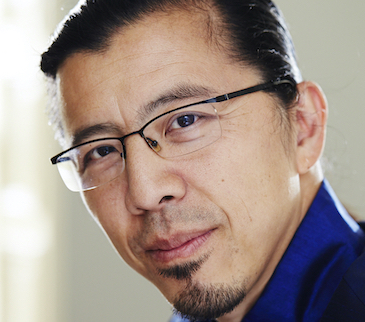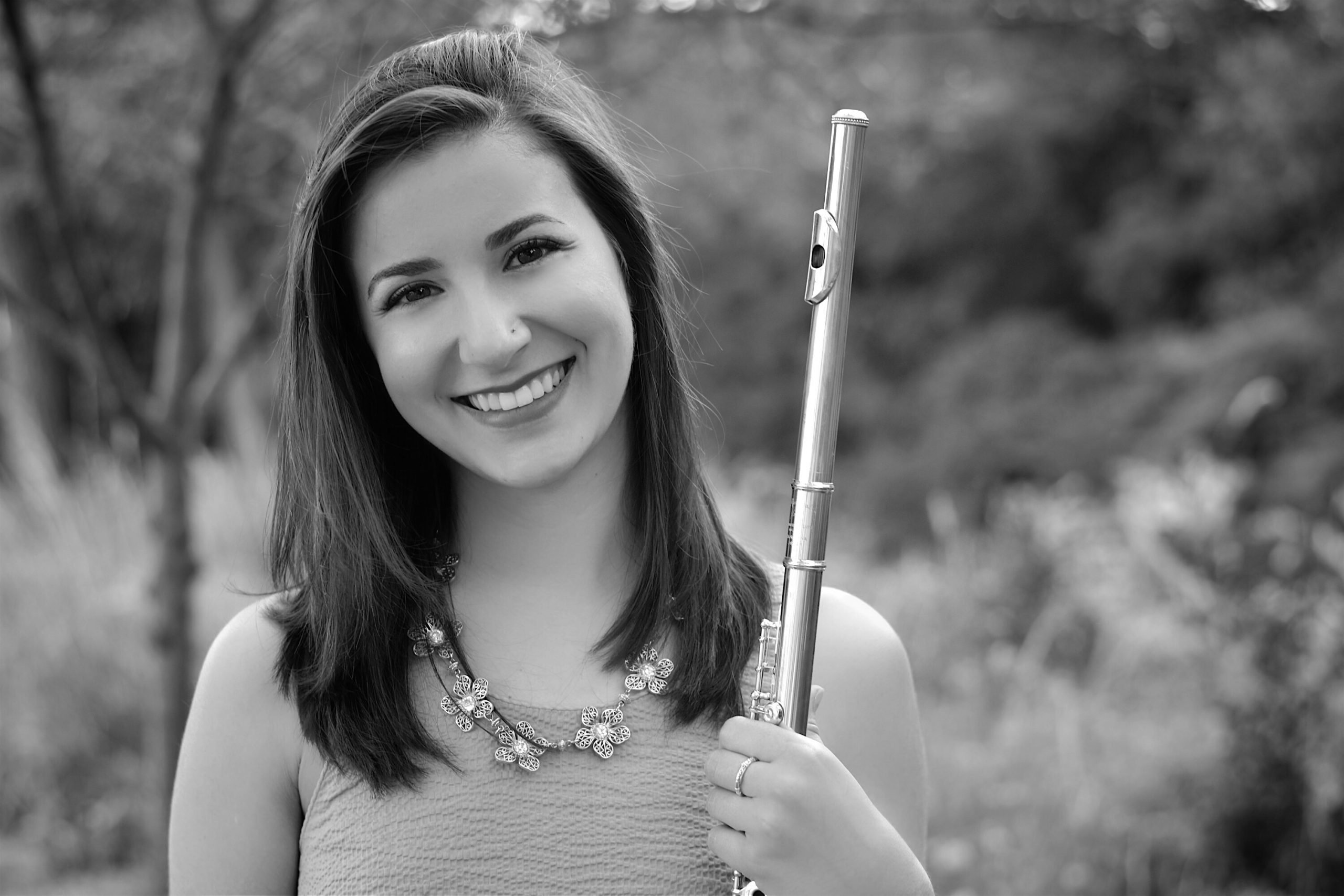I decided my senior year of high school that I wanted to pursue a career in music. I began playing the flute in fifth grade, but it was really in the second half of high school that I became more serious about practicing and taking private flute lessons. I auditioned for Oakland University, playing the Carmen Fantasy by François Borne, along with some scales and études. OU gave us a pianist to use, and I had a chance to rehearse with the pianist prior to the audition.
My first year in college of music.
I started my undergraduate wanting to become a band director. During my first college lesson, I quickly learned that I was behind with my playing fundamentals (long tones, scales, études, etc.). I had never really practiced scales or études seriously. After this wake-up call I became more organized and dedicated with my practicing, and I spent most of my practice time on fundamentals. Professor Sparrow really encouraged me and helped keep me on track. Between my fundamentals work and learning repertoire, I was practicing about two hours a day.
By the end of my freshman year of college, my mindset had shifted, and I decided to add a performance track. Towards the end of my second year, I became more interested in orchestral performance, and began focusing more on that. I didn’t think that it was possible to study both music education and performance as it wasn’t common in my program. I seriously considered dropping the music education track. However, I spoke with all of my professors. Professor Sparrow even put me in touch with a few orchestral musicians that also studied music education in undergrad. I eventually decided to pursue both, and I am very glad I did.
My second year in college of music.
My second year I would usually max out with practicing at about three hours. Between my ensemble commitments and the crazy music-major academic class load of music theory, history, ear training, and my music education classes, I barely had enough time (or energy!) to practice. The first hour to hour and a half were dedicated to long tones and technique. Then I spent about 30 minutes on an étude, and the last hour went to my repertoire. I also set aside some time to practice for ensembles and flute studio. I didn’t spend a ton of time on repertoire, because I was still doing my best to catch up on my fundamentals.
The summer after my second year I attended the National Flute Association (NFA) convention for the first time in Chicago. It was completely earth-shattering to me. Watching all the professional flutists and students close to my age compete and perform pushed me to become much more serious about performing and also orchestral performance. I upped my practice time again as a result. By junior year I started pushing towards four hours. This was the year that I began working on orchestral excerpts regularly in lessons. I was playing with our school orchestra, and I also took private piccolo lessons with Professor Zook for a full semester (this is something I’d highly recommend for any aspiring orchestral flutist!).
My third year in college of music.
Junior year was also when I created recordings for my first flute competitions, the NFA orchestral excerpts competition. I quickly learned that there is no room to hide when submitting recordings, especially for orchestral excerpts. The judges are hearing the same excerpts over and over again, so any mistakes are very obvious.
I was still spending an hour and a half to two hours on fundamentals. I honestly don’t remember a time in undergrad (except for those few randomly crazy weeks where I was just trying to survive as a music student!) where I wasn’t practicing fundamentals. Part of this is because my teacher regularly asked to hear my scales, long tones, and études in lessons, but I also have a very difficult time performing repertoire and orchestral excerpts if I don’t feel that I am in shape, both mentally and physically.
Getting to a high musical level takes a lot of consistent effort. I wasn’t at a high level when I began college, but I learned how to work hard. A lot of people don’t quite understand how much work a music degree takes.
Edited for length and clarity by Claire Thompson.

Alyssa Primeau
Alyssa Primeau recently completed her Masters degree in flute performance from Boston University, and will begin a Performance Diploma at Boston University in the fall of 2020. She earned her Bachelor's degree in instrumental music education and flute performance from Oakland University. Her primary teachers include Linda Toote, Sharon Sparrow, and Jeffery Zook. Alyssa has been featured as a soloist with a number of ensembles such as the Boston University Symphony Orchestra, the Oakland Symphony Orchestra, the Royal Oak Symphony Orchestra, and the Oakland University Wind Symphony. As a chamber musician, Alyssa has extensive experience performing with small ensembles of varied instrumentations. Most recently, as a member of the RedLime Flute Quintet she premiered Martin Amlin’s Three Inventions for Five Flutes and Piccolos in April of 2019. As an orchestral musician, Alyssa has performed with various orchestras including the Detroit Symphony Orchestra, the Oakland Symphony Orchestra, and others.



Comments are closed.